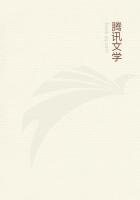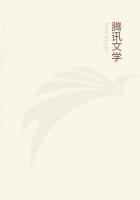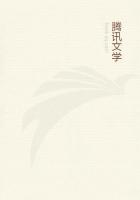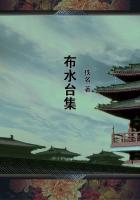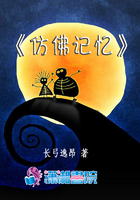The Pelopaeus (A Mason-wasp forming the subject of essays which have not yet been published in English.--Translator's Note.) gives us a very poor idea of her intellect when she plasters up the spot in the wall where the nest which I have removed used to stand, when she persists in cramming her cell with Spiders for the benefit of an egg no longer there and when she dutifully closes a cell which my forceps has left empty, extracting alike germ and provisions. The Mason-bees (Cf. "The Mason-bees": chapter 7.--Translator's Note.), the caterpillar of the Great Peacock Moth (Cf. "Social Life in the Insect World" by J.H. Fabre, translated by Bernard Miall: chapter 14.--Translator's Note.) and many others, when subjected to similar tests, are guilty of the same illogical behaviour: they continue, in the normal order, their series of industrious actions, though an accident has now rendered them all useless. Just like millstones unable to cease revolving though there be no corn left to grind, let them once be given the compelling power and they will continue to perform their task despite its futility. Are they then machines? Far be it from me to think anything so foolish.
It is impossible to make definite progress on the shifting sands of contradictory facts: each step in our interpretation may find us embogged. And yet these facts speak so loudly that I do not hesitate to translate their evidence as I understand it. In insect mentality, we have to distinguish two very different domains. One of these is INSTINCT properly so called, the unconscious impulse that presides over the most wonderful part of what the creature achieves. Where experience and imitation are of absolutely no avail, instinct lays down its inflexible law. It is instinct and instinct alone that makes the mother build for a family which she will never see; that counsels the storing of provisions for the unknown offspring; that directs the sting towards the nerve-centres of the prey and skilfully paralyses it, so that the game may keep good; that instigates, in fine, a host of actions wherein shrewd reason and consummate science would have their part, were the creature acting through discernment.
This faculty is perfect of its kind from the outset, otherwise the insect would have no posterity. Time adds nothing to it and takes nothing from it. Such as it was for a definite species, such it is to-day and such it will remain, perhaps the most settled zoological characteristic of them all. It is not free nor conscious in its practice, any more than is the faculty of the stomach for digestion or that of the heart for pulsation. The phases of its operations are predetermined, necessarily entailed one by another; they suggest a system of clock-work wherein one wheel set in motion brings about the movement of the next. This is the mechanical side of the insect, the fatum, the only thing which is able to explain the monstrous illogicality of a Pelopaeus when misled by my artifices. Is the Lamb when it first grips the teat a free and conscious agent, capable of improvement in its difficult art of taking nourishment? The insect is no more capable of improvement in its art, more difficult still, of giving nourishment.
But, with its hide-bound science ignorant of itself, pure insect, if it stood alone, would leave the insect unarmed in the perpetual conflict of circumstances. No two moments in time are identical;though the background remain the same, the details change; the unexpected rises on every side. In this bewildering confusion, a guide is needed to seek, accept, refuse and select; to show preference for this and indifference to that; to turn to account, in short, anything useful that occasion may offer. This guide the insect undoubtedly possesses, to a very manifest degree. It is the second province of its mentality. Here it is conscious and capable of improvement by experience. I dare not speak of this rudimentary faculty as intelligence, which is too exalted a title: I will call it DISCERNMENT. The insect, in exercising its highest gifts, discerns, differentiates between one thing and another, within the sphere of its business, of course; and that is about all.
As long as we confound acts of pure instinct and acts of discernment under the same head, we shall fall back into those endless discussions which embitter controversy without bringing us one step nearer to the solution of the problem. Is the insect conscious of what it does? Yes and no. No, if its action is in the province of instinct; yes, if the action is in that of discernment. Are the habits of an insect capable of modification? No, decidedly not, if the habit in question belongs to the province of instinct; yes, if it belongs to that of discernment. Let us state this fundamental distinction more precisely by the aid of a few examples.
The Pelopaeus builds her cells with earth already softened, with mud.
Here we have instinct, the unalterable characteristic of the worker.
She has always built in this way and always will. The passing ages will never teach her, neither the struggle for life nor the law of selection will ever induce her to imitate the Mason-bee and collect dry dust for her mortar. This mud nest needs a shelter against the rain. The hiding-place under a stone suffices at first. But should she find something better, the potter takes possession of that something better and instals herself in the home of man. (The Pelopaeus builds in the fire-places of houses.--Translator's Note.)There we have discernment, the source of some sort of capacity for improvement.

